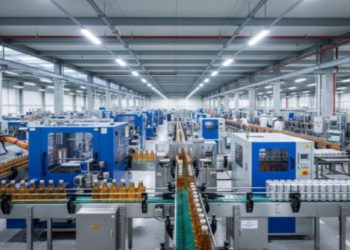Metal bellows are crucial components in many industrial systems, yet they often operate behind the scenes. Their flexible, corrugated structure allows them to absorb movement, compensate for misalignment, and maintain pressure integrity across a wide range of environments. But what exactly are metallic bellows, where are they used, and how do they function?
What Are Metal Bellows?
Metal bellows are elastic, accordion-like components typically made from stainless steel, Inconel, or other high-grade alloys. Their design allows for expansion and contraction along one or more axes while maintaining a sealed environment. They are engineered to withstand high pressure, temperature fluctuations, and corrosive conditions.
The manufacturing process often involves deep drawing, hydroforming, or welding thin-walled metal sheets into a convoluted shape. This structure provides both flexibility and strength, enabling them to function reliably even under cyclic loading.
Where Are Metal Bellows Used?
These components are used in numerous industries where movement, vibration, or thermal expansion must be managed without compromising the system’s seal or structural integrity. Common applications include:
- Piping systems in power plants and chemical facilities
- Vacuum and ultra-high vacuum (UHV) systems in research and semiconductor production
- Aerospace and defence, where weight, space, and durability are critical
- Medical devices, such as ventilators and surgical tools
- Cryogenic systems, where extreme temperature tolerance is essential
Their ability to ensure leak-tight operation makes metallic bellows ideal for safety-critical systems.
How Do They Work?
Metallic bellows work by absorbing axial, lateral, and angular movements in a controlled way. For example, in a high-temperature pipeline, thermal expansion can cause pipes to shift. A metallic bellow compensates for this movement, preventing stress that could otherwise lead to cracking or failure.
They can also serve as pressure seals in actuators or as flexible joints between rigid components. Depending on the specific need, bellows can be designed with varying numbers of convolutions, wall thicknesses, and end fittings to match the operating environment.
A Note on Quality and Customisation
Given the diversity of their applications, the quality and precision of metal bellows are paramount. Manufacturers such as Belman offer bespoke solutions tailored to customer specifications, ensuring compliance with industry standards and performance under extreme conditions.
David Prior
David Prior is the editor of Today News, responsible for the overall editorial strategy. He is an NCTJ-qualified journalist with over 20 years’ experience, and is also editor of the award-winning hyperlocal news title Altrincham Today. His LinkedIn profile is here.













































































